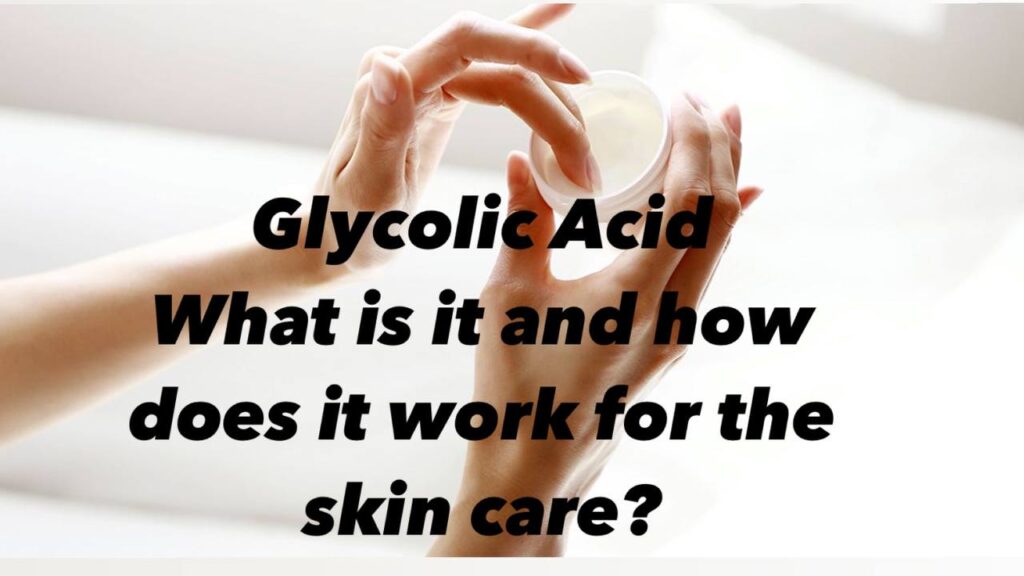Glycolic Acid is a type of alpha hydroxy acid (AHA), found naturally in foods and derived from sugarcane.
How It Works: AHAs like glycolic acid remove dead skin cells from the surface and may help reverse sun damage. It is used for treating acne, aging skin, dark patches, and acne scars. Some also use it for stretch marks and other conditions, but there isn’t enough scientific evidence to support these additional uses.
Different from Other AHAs: Don’t mix up glycolic acid with other AHAs like citric acid, lactic acid, malic acid, and tartaric acid. They each have different properties.
Uses & Effectiveness
Possibly Effective for:
– Acne: Applying glycolic acid can help reduce acne in people 12 and older with mild to moderate acne.
– Aging Skin: It helps reduce wrinkles and signs of aging and sun damage.
– Acne Scars: Glycolic acid, alone or with microneedling, can help reduce acne scars.
– Melasma: It can reduce mixed-type and epidermal-type melasma, though it’s less effective for deeper dermal-type melasma.
There’s interest in using glycolic acid for other purposes, but we need more reliable information to confirm its effectiveness.
Side Effects
When taken orally: There’s not enough reliable information to know if it’s safe or what the side effects might be.
When applied topically: It’s generally safe in products with 10% glycolic acid or less. Higher concentrations should only be used under a dermatologist’s supervision, as they can cause serious skin reactions if misused.
Precautions and Warnings
– Oral Use: Not enough reliable information on safety.
– Topical Use: Safe in concentrations of 10% or less. Higher concentrations should be used under dermatologist care.
– Pregnancy and Breastfeeding: Likely safe when applied to the skin, but not enough data on oral use. Stick to topical products to be safe.
– Sensitive Skin: Can cause irritation and worsen some skin conditions. Use with caution if you have sensitive skin.
How to Use Glycolic acid
Glycolic acid is usually applied by adults in lotions and creams with 10% to 15% glycolic acid once or twice daily for up to 4 months. Short facial peels under a healthcare provider’s supervision are also common. Talk to a healthcare provider to find the best product and concentration for your skin needs.
Info on Glycolic Acid Cream
Glycolic Acid Cream: Discover the power of glycolic acid with our moisturizer, specially designed to tackle pigmentation, dark spots, and acne on your face.
Exfoliates and Refreshes: Our glycolic acid moisturizer gently sloughs off dead skin cells, promoting new cell growth and revealing a smoother, brighter complexion.
Boosts Collagen: The active ingredients help boost collagen production, improving skin elasticity and reducing fine lines and wrinkles.
Deep Hydration: Formulated with moisturizing ingredients, our cream deeply hydrates and nourishes your skin, leaving it soft and supple.
Smooths Skin Texture: Regular use helps refine your skin’s texture, making it smoother and more even.
Good for All Skin Types: Whether your skin is dry, oily, or somewhere in between, our glycolic acid moisturizer is effective and non-irritating. Fades Pigmentation and Dark Spots: Targeted to minimize pigmentation and fade dark spots, giving you a more even and radiant complexion. Helps with Acne: Specifically designed to tackle acne, our moisturizer helps reduce breakouts and their appearance, leaving your skin clearer and healthier-looking.
Dermatologist Recommended: Trusted by dermatologists for its exfoliating and renewing properties, this moisturizer delivers visible results with regular use
Do follow for more https://notionopia.com/category/health/

